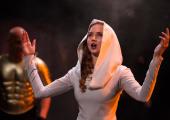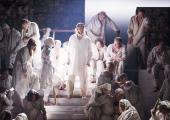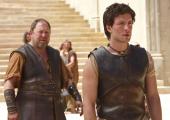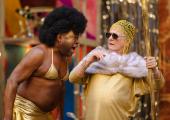Defining Beauty: The Body in Ancient Greek Art, British Museum

More than the sum of its parts: an exploration of how the human form was perfected
We think we know it when we see it. But how, pray, do we define beauty? The ancient Greeks thought they had the measure of it. In the 4th century BC, the “chief forms of beauty,” according to Aristotle, were “order, symmetry and clear delineation.” A century earlier, during the golden age of Athens, Polykleitos, one of the ancient world’s greatest sculptors, set out the precise ratios for the ideal male form in a treatise he called The Canon.









